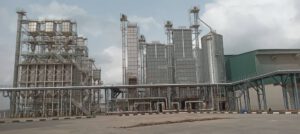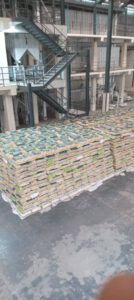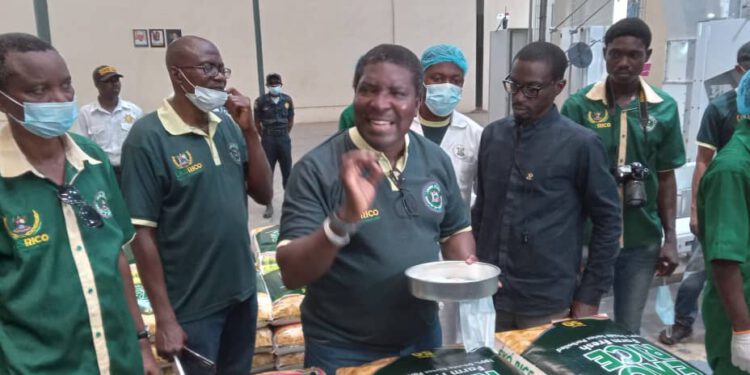The Lagos State Government has assured residents of the availability of Eko Rice this yuletide season, reiterating its commitment to the vision behind setting up the Lagos Rice Mill in Imota, Ikorodu. It has also vowed to monitor and curb cases of diversion of the rice, as it has discovered that some have even rebagged it to resell to consumers at a higher price.
The Special Adviser to the Governor on Agriculture, Dr. Oluwarotimi Fashola, disclosed this to journalists during a facility tour of the 8.5-hectare Lagos Rice Mill in Imota. He stated that while the state cannot flood all the markets with Eko Rice, it is determined to improve the distribution network in the near future.

Dr. Fashola noted that residents of the state consume up to 40 million bags of rice annually, which represents the largest in the country. He added that the Lagos Rice Mill in Imota produces 10% of what Lagos consumes.
He emphasized that Eko Rice is already trademarked and registered, making it a flagship product that cannot be used by any other outlet.
Dr. Fashola also highlighted the facilities at the rice mill, stating, “We have silos for paddy and can take 40 tons of paddy. We also developed the boilers from the steam, making the rice of high quality. Within the premises, we have a guest house and staff quarters to boost the morale of our workers.”

Speaking about power supply to the rice mill, Dr. Fashola explained that they are connected to Ikeja Electric, which supplies an average of about 6 hours of electricity daily. However, he lamented that they largely depend on generators to run efficiently. The state Governor, Mr. Babajide Sanwoolu, is considering gas-based power as a solution to the power problem.
Regarding the sourcing of paddy, the main produce for rice, the Special Adviser explained that they receive supplies from across the nation and ensure proper measurement upon arrival at the rice mill before processing.
He also mentioned that the mill currently has a capacity of about 2 million metric tons of water, which could be expanded to 4 million. For daily production, the plant uses about 1 million metric tons of treated water, with 85% going into production and the remaining 15% returning to the ecosystem.
Dr. Fashola further explained the milling process, stating that Line A is where the cleaning of paddy starts before transfer to Line B for further processing. Both Line A and Line B consist of 16 silos.

He noted that Thailand, Indonesia, and Europe do not bag their rice but use small plastics due to mechanization, while Nigeria and India do bag their rice.
The Special Adviser on Agriculture highlighted that rejected produce from the process is used as animal feed, emphasizing that what is categorized as waste has value in other areas.
Dr. Fashola disclosed that bran is a product from rice and that the oil extracted from it is of high quality, almost comparable to olive oil. He also mentioned that the protein content in bran is used for soybeans. He stated, “We eat parboiled rice in the country, which is very nutritious unlike imported ones.”
He added that the plant rejects paddy from some suppliers if the deduction of particles is high, emphasizing that they do not compromise on standards at Imota.
Dr. Fashola noted that during milling, the plant relies fully on generators and not the Power Holding Company of Nigeria (PHCN) to prevent fluctuations.
In conclusion, the Head of the Quality Control Room, Mr. Wisdom Nnosiri, explained that they carry out proper checks on raw materials from the trucks as they enter the plant for a hard mixture. The Project Officer for Lagos Rice Mill, Imota, Shode Oladipupo, stated that her job is to confirm approval for payment before the final product, head rice, is allowed to leave the premises of the Lagos Rice Mill, Imota.
The biggest rice mill in the country, built in 2021 and estimated at over twenty billion naira, provides employment to more than two hundred Nigerians and some expatriates.





















